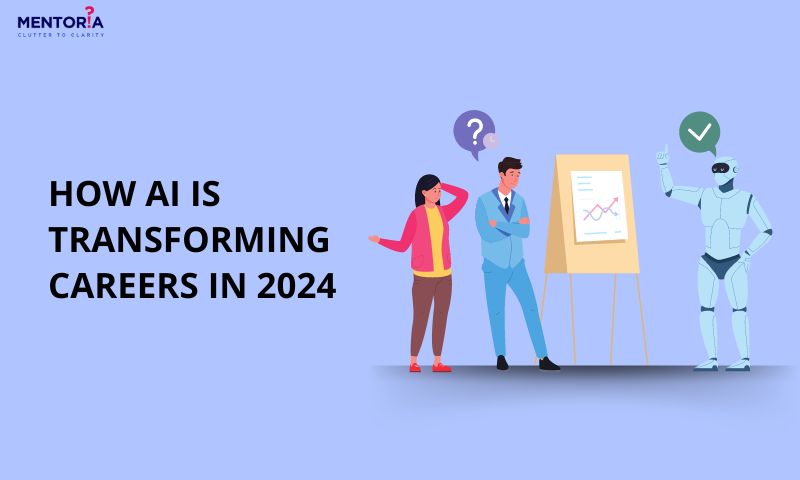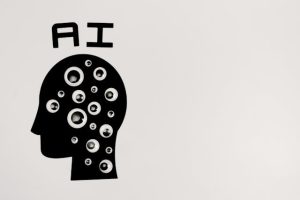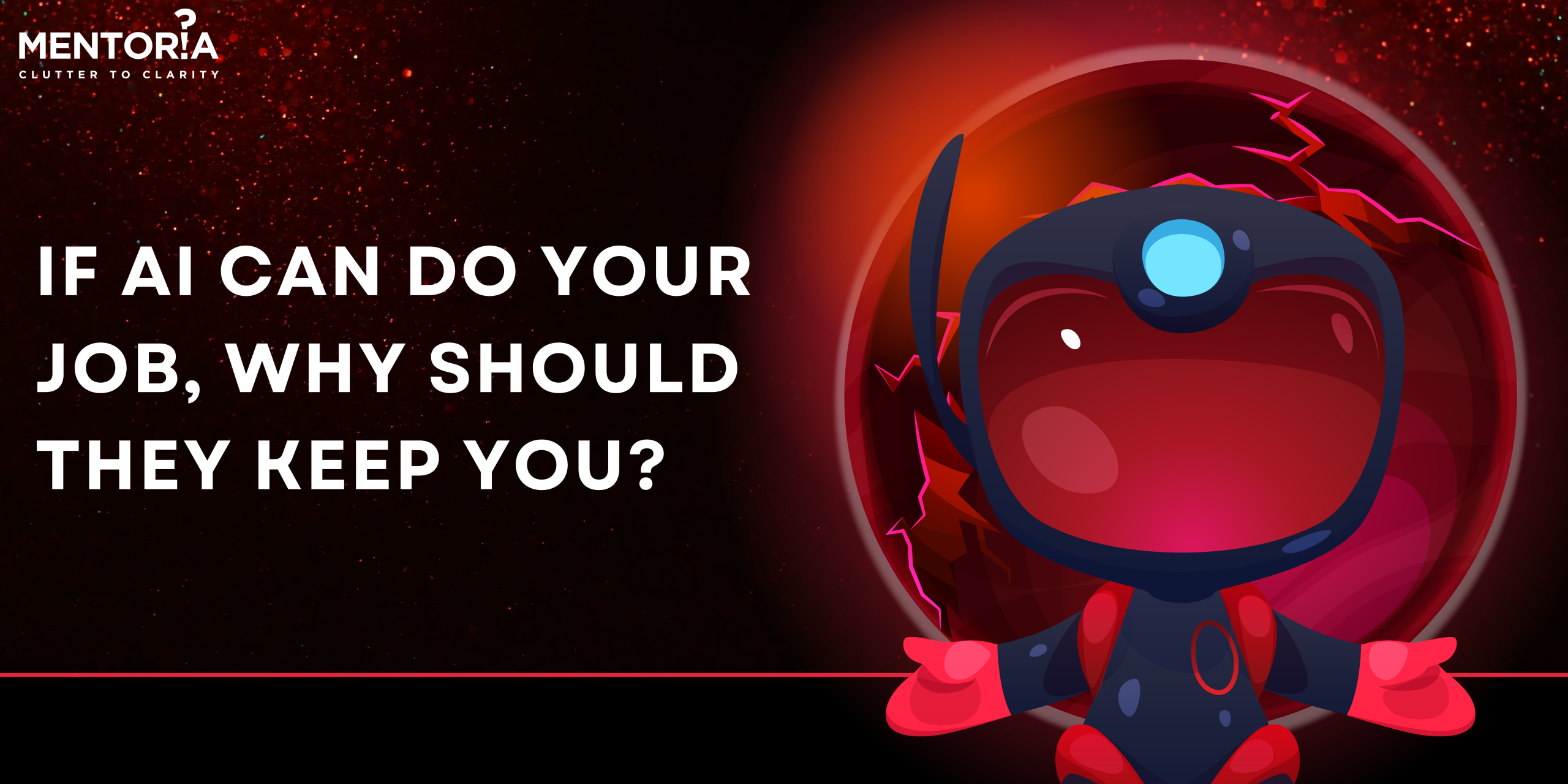How AI Is Transforming Careers In 2024

Jump to Section
Ever wondered how Artificial Intelligence (AI) is reshaping careers in 2024? From streamlining workflows to enhancing decision-making, AI is revolutionising the way we work. Just think about it – AI-powered tools are already helping doctors diagnose diseases faster, assisting designers in creating innovative products, and supporting businesses in making data-driven decisions. But what does this mean for your career? How can you prepare for the AI-driven future? In this article, we’ll explore the exciting ways AI is transforming careers and how you can stay ahead in this rapidly evolving landscape.
How Artificial Intelligence Impacts Working Employees
- Automation of everyday tasks: AI has revolutionised the way we live by automating everyday tasks. Virtual assistants like Siri and Alexa make it a breeze to set reminders and find information quickly.
- Medical care: In the field of medical care, AI plays a crucial role in diagnosing diseases accurately from medical images. This can result in earlier detection and more effective treatment.
- Cybersecurity and fraud detection: Content personalisation is another area where AI shines. Platforms like Netflix use AI algorithms to recommend movies and shows based on your viewing history, making it easier to discover new content you’ll love.
- Content Personalisation: When it comes to cybersecurity, AI systems are invaluable in detecting suspicious activity in financial transactions. This helps safeguard against fraud and cyber attacks, ensuring our personal information stays secure online.
Impact Of Artificial Intelligence In the Workplace
AI has totally shaken up how people get jobs, bringing both new challenges and opportunities for workers. Let’s check out a few of them:
Collaborating With Machines
AI has become an indispensable ally in aiding and empowering workers, enabling them to concentrate on tasks that bring significant value. This not only enhances productivity but also boosts employee contentment by liberating them from monotonous and repetitive duties.
Impact On Training And Learning
AI is changing the way we learn and train at work. It means we have to keep learning new skills and getting used to new tech. This also means more chances for training and happier, more engaged employees.
Transformation Of Jobs
Artificial intelligence is having a two-fold effect on the job market, impacting the emergence of certain roles while causing others to vanish. On one hand, AI has paved the way for specialised positions like data scientists, AI engineers, chatbot developers, and machine learning analysts. On the other hand, the automation of mundane tasks could result in the elimination of jobs such as data entry positions.
The AI Revolution: Transforming Industries And Reshaping Workforces
AI is advancing at an astonishing rate year after year. Everyone seems to be convinced that robots will eventually take over all sorts of jobs in the economy. However, it’s difficult to determine exactly how quickly this transformation will take place. It largely depends on how technology progresses and its ability to outperform humans in specific tasks they excel at. Some experts even predict that AI advancements will bring about a new industrial revolution, potentially signalling the end of capitalism. According to them, robots will eventually dominate various professions, leaving humans with only mundane responsibilities.
A report from investment bank Goldman Sachs suggests that AI could replace 300 million full-time jobs worldwide. This means that AI could handle a quarter of the work tasks in the US and Europe. However, it could also create new jobs and make us more productive. According to the report, AI has the potential to boost the overall value of global goods and services by 7%. Moreover, it highlights that approximately two-thirds of jobs in the US and Europe might face the impact of AI automation.
This implies that some jobs could be taken over by AI instead of people. For instance, educated office workers might be impacted. Forbes highlights a study by MIT and Boston University, which predicts that AI could replace up to two million manufacturing jobs by 2025. Another study by the McKinsey Global Institute suggests that by 2030, around 14% of workers worldwide may need to switch jobs due to AI and other new technologies.
Some companies are embracing AI with open arms, while others are worried about the threat it poses to employment and income inequality. The future is going to look different, so get ready for some major changes in your work life. It’s worth pondering how our lives will be affected and what the world will look like in the coming years. To help you out, we’ve broken down our research into a few key points that explain the ins and outs of this technology and its implications for the future.
Automation
AI technologies, such as robotics and machine learning algorithms, can be programmed to perform repetitive tasks that were traditionally done by humans. This includes assembly line work in manufacturing or answering routine customer queries in a call centre. As these tasks are automated, the need for human workers to perform them diminishes, potentially leading to job losses in these sectors.
Efficiency
AI has the incredible ability to handle and examine massive amounts of data at lightning-fast speed and with remarkable precision, surpassing human capabilities. This can greatly enhance efficiency across different sectors like healthcare, finance, and logistics. Although this efficiency can bring cost savings and boost productivity for businesses, it might also result in a decreased demand for human workers in specific positions.
Skill Shift
With the rise of AI technologies, the skills required for certain jobs may undergo a shift. For instance, jobs that involve physical labour or repetitive thinking tasks could be taken over by AI, while new roles demanding programming, data analysis, and critical thinking skills may emerge. This change in skill requirements can result in job displacement for workers who lack the necessary skills for these new positions.
Economic Impact
The widespread adoption of AI could have significant economic implications. While AI has the potential to increase overall productivity and drive economic growth, there are concerns that it could also lead to job losses and widen income inequality. If large numbers of jobs are automated without sufficient replacement opportunities, it could result in higher unemployment rates and a concentration of wealth among those who own the AI technology.
Adoption Of Challenges
The adoption of AI technologies in the workplace may face several challenges. These include the cost of implementing AI systems, the need for retraining and upskilling existing workers to work alongside AI, and potential resistance from workers who fear job displacement. Companies may need to carefully manage the adoption of AI to minimise disruption to their workforce and ensure a smooth transition to a more automated future.
Embracing The AI Revolution: Navigating The Future Of Work
The future of work is a topic that sparks varying opinions when it comes to the impact of artificial intelligence (AI). While some experts anticipate job displacement, others envision a surge in new job opportunities. However, amidst these contrasting views, one thing remains evident as highlighted in a recent O’Reilly report: technology is revolutionising our lives and professional paths. To navigate this transformative era, it is crucial to prioritise skill development that complements technology, whether you are exploring fresh job prospects or aiming for growth within your current role.
AI is going to change how we work in many ways. Here are some important things to think about:
- AI and Jobs: The impact of AI on jobs is still uncertain – it could either create more jobs or replace existing ones, especially those that involve repetitive tasks.
- Learning New Skills: With the rise of AI in the workforce, workers will need to learn new skills to stay relevant. Companies can support this by offering training programmes and resources for skill development.
- Working with AI: Collaboration between humans and AI is seen as the future of work. This partnership could involve working together on tasks, with AI enhancing human efficiency.
- Diversity at Work: AI has the potential to promote workforce diversity by reducing bias. For instance, it can be used in recruitment to eliminate bias in hiring decisions.
- Ethical Issues: As AI becomes more common in the workplace, ethical considerations must be addressed. Companies need to ensure that their use of AI is ethical and fair to all groups
- The Gig Economy: AI might revolutionise the gig economy by streamlining job matching for individuals and companies. This could lead to a more efficient and flexible gig economy.
- Automation: Workplace automation through AI is expected to free up workers from routine tasks, allowing them to focus on more complex responsibilities. Tasks that are repetitive or lack creativity are likely to be automated, changing the work landscape for many.
Who Will Be Affected By Artificial Intelligence?
Artificial intelligence is on the rise, but its impact won’t be the same for everyone. As we move towards an automated economy, AI is likely to result in job losses for low-skilled workers. Unfortunately, these job losses will disproportionately affect the most vulnerable individuals in our society.
Workers with moderate skills, who have some education and experience, are particularly at risk. They already face tough competition from lower-skilled workers worldwide, who can do similar jobs for less pay. The rise of AI will only worsen this situation, as it will enable fewer highly qualified workers to replace a larger number of jobs.
Highly skilled workers in fields that require creative and social intelligence (CSI) are also at risk. These jobs have traditionally been challenging for computers to perform, so they haven’t faced as much pressure from global competition as lower-skilled positions. However, computers are now starting to learn how to handle some CSI tasks as well. It’s only a matter of time before they start displacing human workers in these fields too.
AI will have different effects on different groups of people:
- Monotonous Jobs: Monotonous jobs, like entering data or doing the same task on an assembly line, can be done by AI instead of people. For example, robots powered by AI can be taught to put things together in a factory, so workers don’t have to do it over and over again.
- Professionals: AI can assist professionals like doctors, lawyers, and accountants by analysing large amounts of data quickly and accurately. For example, AI algorithms can help doctors diagnose diseases by analysing medical images or assist lawyers in reviewing legal documents.
- Workers Needing Reskilling: AI implementation may require workers to learn new skills. For example, a factory worker whose job is automated by AI may need to undergo training to learn how to operate and maintain the AI-powered machinery.
- Job Seekers: AI can impact the hiring process by automating resume screening and candidate selection. For example, AI algorithms can quickly scan resumes for relevant skills and experience, helping employers identify suitable candidates more efficiently.
- Elderly and Disabled Individuals: AI technologies can assist elderly and disabled individuals with daily tasks and healthcare. For example, AI-powered robots can help elderly individuals with mobility issues by assisting them in moving around or reminding them to take medication on time.
It’s important to remember that while AI may disrupt certain job sectors, it could also create new opportunities and change the nature of work in ways that are hard to predict.
Jobs Unlikely To Be Replaced By AI
Jobs Requiring Creativity
- Artists: Artists use their creativity to express ideas and emotions through various mediums such as painting, sculpture, or music. AI may assist artists in generating ideas or creating art, but the human touch and originality of the artist’s vision are difficult to replicate.
- Designers: Designers create products, visual concepts, or experiences that are both functional and aesthetically pleasing. While AI can assist in design tasks, such as generating basic layouts or patterns, the innovative thinking and problem-solving skills of human designers are crucial for creating impactful designs.
Roles Involving Empathy And Human Interaction
- Therapists: Therapists provide emotional support and guidance to individuals or groups dealing with mental health issues or personal challenges. The ability to empathise, understand complex emotions, and provide personalised care are skills that AI currently struggles to replicate.
- Caregivers: Caregivers, such as nurses or social workers, provide physical and emotional care to people in need, including the elderly, disabled, or ill. The compassionate and human connection that caregivers provide is essential and challenging for AI to emulate.
Positions Requiring Complex Decision-making
- Managers: Managers oversee and coordinate the activities of an organisation or department. They make strategic decisions, solve complex problems, and provide leadership to achieve organisational goals. While AI can assist in data analysis and decision-making processes, the ability to understand nuanced situations and make holistic decisions based on multiple factors is a human strength.
- Strategists: Strategists develop long-term plans and goals for organisations, considering market trends, competition, and internal capabilities. They need to think critically, anticipate future challenges, and adapt strategies accordingly, which requires a level of foresight and judgement that AI currently lacks.
Jobs In Healthcare, Education, And Customer Service
- Nurses: Nurses provide direct patient care, assess health needs, and administer medications. They also offer emotional support to patients and families, requiring empathy and communication skills that are difficult for AI to replicate.
- Teachers: Teachers educate and mentor students, adapting their teaching methods to individual learning styles and needs. The personalised interaction, feedback, and encouragement that teachers provide are crucial for student development, making teaching a challenging role for AI to fully replace.
- Customer Service Representatives: Customer service representatives assist customers with inquiries, complaints, and product support. They need to understand customer needs, convey empathy, and provide solutions, which are skills that AI struggles to deliver convincingly.
Skilled Trades And Manual Labour
- Carpenters: Carpenters construct and repair structures and fixtures using wood and other materials. The precise measurements, problem-solving skills, and manual dexterity required in carpentry are challenging for AI to replicate in real-world, non-standardised environments.
- Plumbers: Plumbers install and repair plumbing systems, requiring a deep understanding of fluid dynamics, building codes, and problem-solving skills that are difficult for AI to apply in complex, unpredictable situations.
- Electricians: Electricians install and maintain electrical systems in homes, businesses, and factories. They need to understand complex electrical systems, troubleshoot issues, and ensure safety, tasks that require human judgement and adaptability.
New Job Prospects Arising From AI
AI is not exactly taking away jobs, it’s also opening up new job prospects. Having AI skills is crucial in various sectors, offering chances for individuals to enhance and utilise these skills. New roles like data scientists, machine learning engineers, roboticists, and cybersecurity experts are on the rise in the AI field. Moreover, AI is leading to the emergence of job opportunities in healthcare, agriculture, and information technology. Some fields are listed below
- Data Science and Analytics: AI requires vast amounts of data to learn and improve. Data scientists and analysts are needed to collect, analyse, and interpret this data.
- Machine Learning Engineering: Professionals skilled in developing and implementing machine learning algorithms are in high demand to create AI systems.
- AI Ethics and Compliance: With the growing concern around AI ethics, there’s a need for professionals who can ensure AI systems are developed and used responsibly and ethically.
- AI Process Automation Specialist: These professionals identify opportunities to automate tasks using AI, improving workflow efficiency. They streamline processes to enhance overall operational effectiveness.
- AI Customer Experience Manager: In this role, individuals leverage AI tools to enhance customer interactions. This includes providing personalised recommendations and improving customer service efficiency, aiming to deliver superior customer experiences.
- AI Supply Chain Analyst: Utilising AI technologies, these analysts optimise supply chain operations. They forecast demand, manage inventory effectively, and enhance logistical operations, ultimately improving the efficiency of the supply chain.
- Robotics and Automation: Engineers and technicians specialising in robotics and automation are needed to design, build, and maintain AI-powered robots and automated systems.
- Cybersecurity: As AI becomes more integrated into various systems, the need for cybersecurity professionals to protect these systems from cyber threats increases.
- Healthcare AI: AI is transforming healthcare with applications in diagnostics, personalised medicine, and patient care. Healthcare professionals who understand AI technologies are in demand.
- Customer Service and Experience: AI is being used to improve customer service through chatbots, virtual assistants, and personalised recommendations, creating opportunities for customer service professionals with AI expertise.
- AI Research and Development: AI researchers and developers are needed to push the boundaries of AI technology and create innovative solutions.
- Education and Training: As AI transforms industries, there is a growing need for professionals who can educate others about AI and train them to work with AI technologies.
- Creative Industries: AI is being used in creative fields such as art, music, and design to generate content and assist in creative processes, creating new opportunities for artists and designers with AI skills.
AI Is Transforming The Job Market
The way companies hire new employees in 2024 will change a lot. AI will be used more for smarter and faster hiring. Also, companies will focus more on things like people skills, diversity, and remote work. To keep up, both employers and job seekers should learn about these changes and be ready to adapt to them.
If you’re looking to thrive in the age of AI, Mentoria is here to lend a hand, offer support, and provide expert advice. Our team of seasoned mentors is prepared to offer personalised strategies and valuable tips to boost your career. Don’t hesitate to get in touch with us; we’ll be your guiding light on the journey to success.











